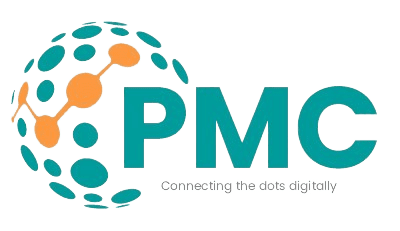
In today’s digital world, having a strong online presence is a must for small businesses to thrive. Digital marketing opens the door for smaller companies to connect with a wider audience and compete with larger corporations. These businesses can use various digital marketing tactics to boost their brand’s visibility, attract potential customers, and ultimately increase sales.
Unlike traditional marketing methods, digital marketing allows for more targeted and personalised advertising. This means small businesses can engage with potential customers who are genuinely interested in what they have to offer. Plus, digital marketing offers valuable insights and data that can be used to measure the success of marketing campaigns and make informed decisions for the future. It’s a game-changer for small businesses, giving them a shot at reaching a global audience without breaking the bank.
When done right, digital marketing can put small businesses on a level playing field with big players in the industry. It encompasses a whole range of tools and strategies, from social media and content marketing to SEO and email campaigns, all of which can be tailored to suit the unique needs of small businesses. The impact of digital marketing for small businesses cannot be overstated—it opens up doors to connect with potential customers in ways that were previously beyond reach.
Key Points to Remember
- For small businesses, digital marketing is essential for engaging with their target audience in the digital age.
- Knowing your audience and your niche is vital for creating tailored and effective digital marketing plans.
- Having a professional website and active social media presence is crucial for boosting visibility and building credibility.
- Using social media and content marketing can help small businesses interact with their audience and raise brand awareness.
- Implementing SEO strategies can improve online visibility and attract more organic traffic to a small business’s website.
- Leveraging email marketing and automation can help nurture leads and maintain strong customer relationships.
- Measuring and analysing digital marketing results is key for identifying areas to improve and sustaining growth for small businesses.
Understanding Your Target Audience and Finding Your Niche
When it comes to small business digital marketing, figuring out who your target audience is and finding your niche is a vital first step. Getting to know your ideal customers and understanding their needs and preferences is key to creating marketing campaigns that hit the mark. By conducting market research and analysing customer data, small businesses can gain valuable insights into their target audience’s demographics, behaviors, and interests.
Armed with this knowledge, you can create personalised content and messaging that truly resonates with potential customers, encouraging them to engage with your brand. But it’s not just about knowing your target audience – it’s also important to define your unique niche in the market. By specialising in a specific product or service offering, small businesses can set themselves apart from the competition and attract a more focused customer base.
This focused approach allows for more targeted and effective marketing efforts, establishing small businesses as experts in their field. So, taking the time to identify your target audience and niche is a crucial step in developing a digital marketing strategy that successfully reaches and engages potential customers.
Building a Solid Online Presence
To thrive in the digital marketplace, small businesses must create a strong online presence that leaves a lasting impression. This begins by having a professional and user-friendly website that accurately reflects your brand and its offerings. A well-designed website not only serves as a platform for showcasing your products or services but also acts as the central hub for all your digital marketing efforts.
But it doesn’t end with a website – small businesses should also consider creating profiles on relevant social media platforms to expand their online presence and connect with potential customers wherever they are in the vast digital landscape. Another crucial aspect of building a solid online presence is creating valuable and engaging content. Whether it’s through blog posts, videos, infographics, or any other form of content, providing useful information and unique insights positions your small business as an authority in your industry.
This not only helps attract and retain customers but also improves your search engine rankings, making it easier for potential customers to find your business online. In a nutshell, creating a solid online presence is essential for small businesses looking to establish credibility, attract new customers, and build lasting relationships with their target audience.
Utilising Social Media and Content Marketing

Social media and content marketing are powerful tools for small businesses looking to connect with their target audience and drive engagement. Social media platforms provide an opportunity to interact with potential customers on a more personal level, share valuable content, and build brand awareness. By creating a strong social media presence and regularly posting relevant content, small businesses can increase their visibility and reach a wider audience.
Content marketing, on the other hand, involves creating and sharing valuable content such as blog posts, videos, infographics, and more to attract and retain customers. By providing useful information and insights related to the industry or niche, small businesses can position themselves as experts and build trust with potential customers. This not only helps to drive traffic to the website but also encourages engagement and ultimately leads to increased sales.
Overall, utilising social media and content marketing allows small businesses to connect with their target audience in a meaningful way, build brand loyalty, and drive business growth.
Implementing SEO Strategies for Increased Visibility
Search engine optimisation (SEO) is a critical component for small businesses seeking to enhance their online visibility and drive organic traffic to their website. By fine-tuning website content and structure to align with relevant keywords and phrases, small businesses can elevate their search engine rankings and secure higher placements in search results. This optimisation strategy simplifies the process for potential customers to discover the business when seeking related products or services.
Incorporating both on-page SEO techniques and off-page strategies like link building and social media promotions can further amplify a small business’s online visibility. By acquiring high-quality backlinks from reputable websites and actively sharing content on social media platforms, small businesses can augment their website’s authority and attract a larger volume of organic traffic.
Overall, the adoption of SEO strategies is imperative for small enterprises aiming to stay competitive in the digital landscape and draw in potential customers actively searching for their offerings.
Leveraging Email Marketing and Automation
Email marketing stands as a powerful tool for small businesses seeking to nurture leads, build customer relationships, and drive sales. By accumulating email addresses through website sign-ups or purchases, small businesses can construct targeted email campaigns that deliver personalised content directly to potential customers’ inboxes. This avenue of direct communication allows businesses to engage effectively with their target audience and showcase new products or promotions.
Moreover, embracing automation tools can streamline the email marketing process and ensure that messages are dispatched at optimal times to the right recipients. By establishing automated email workflows grounded in customer actions or behaviors, small businesses can provide relevant content that resonates with potential customers and motivates them to engage further. Ultimately, email marketing and automation serve as invaluable resources for small businesses aiming to connect with their audience, drive conversions, and cultivate lasting customer relationships.
Measuring and Analysing Results for Continued Growth
The measurement and analysis of digital marketing outcomes are indispensable for small businesses striving for sustained growth and success. By monitoring key performance indicators like website traffic, conversion rates, email open rates, social media engagement, and more, small businesses can extract valuable insights into the efficacy of their marketing initiatives. This data can then inform informed decisions regarding future marketing endeavours, pinpoint areas for enhancement, and optimize strategies for superior outcomes.
Furthermore, scrutinising results enables small businesses to ascertain their return on investment (ROI) and allocate resources more efficiently towards the most fruitful marketing channels. In essence, the process of measuring and analysing results plays a pivotal role for small businesses committed to refining their digital marketing strategies continuously and achieving enduring growth in the fiercely competitive online realm.
